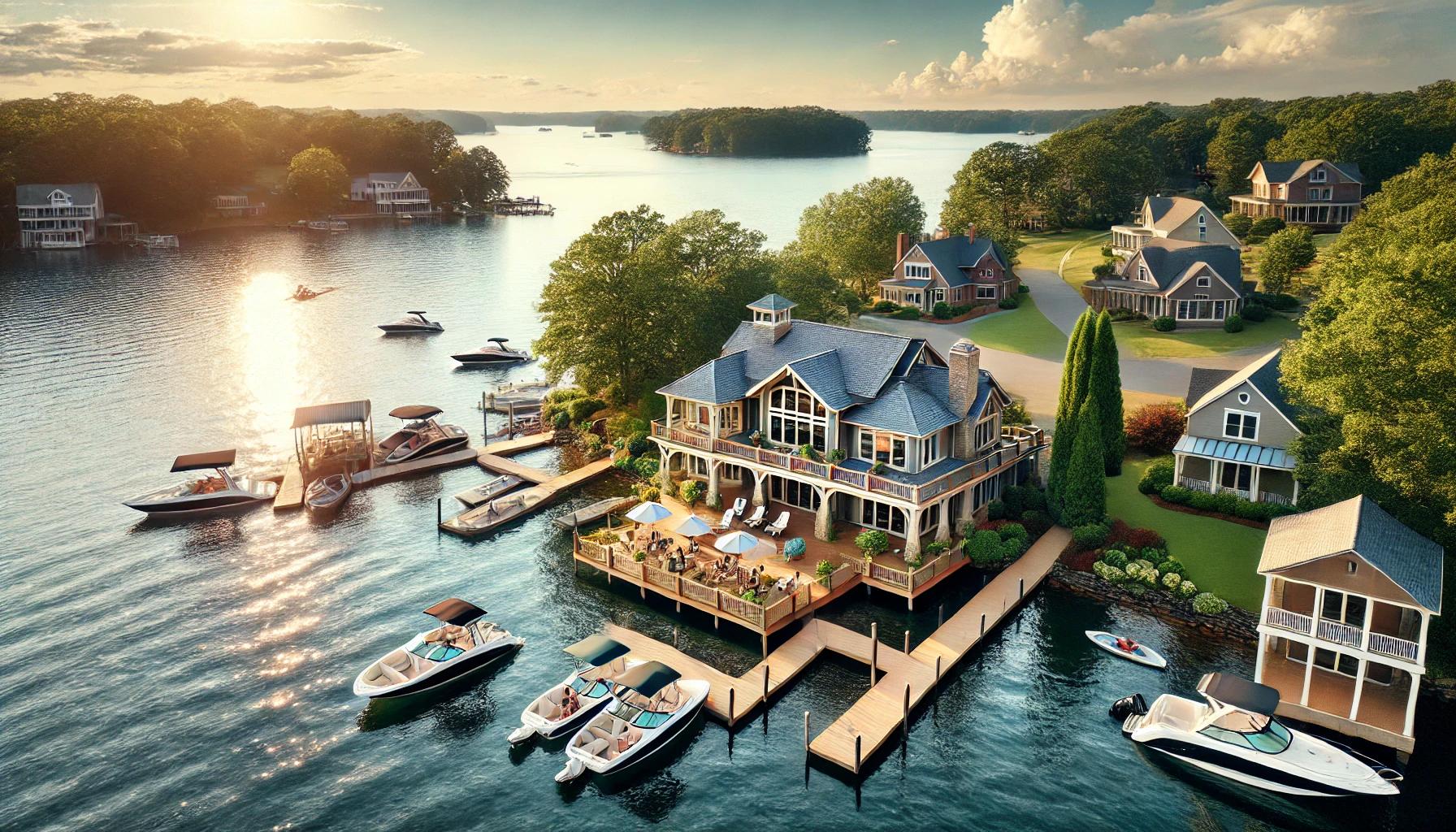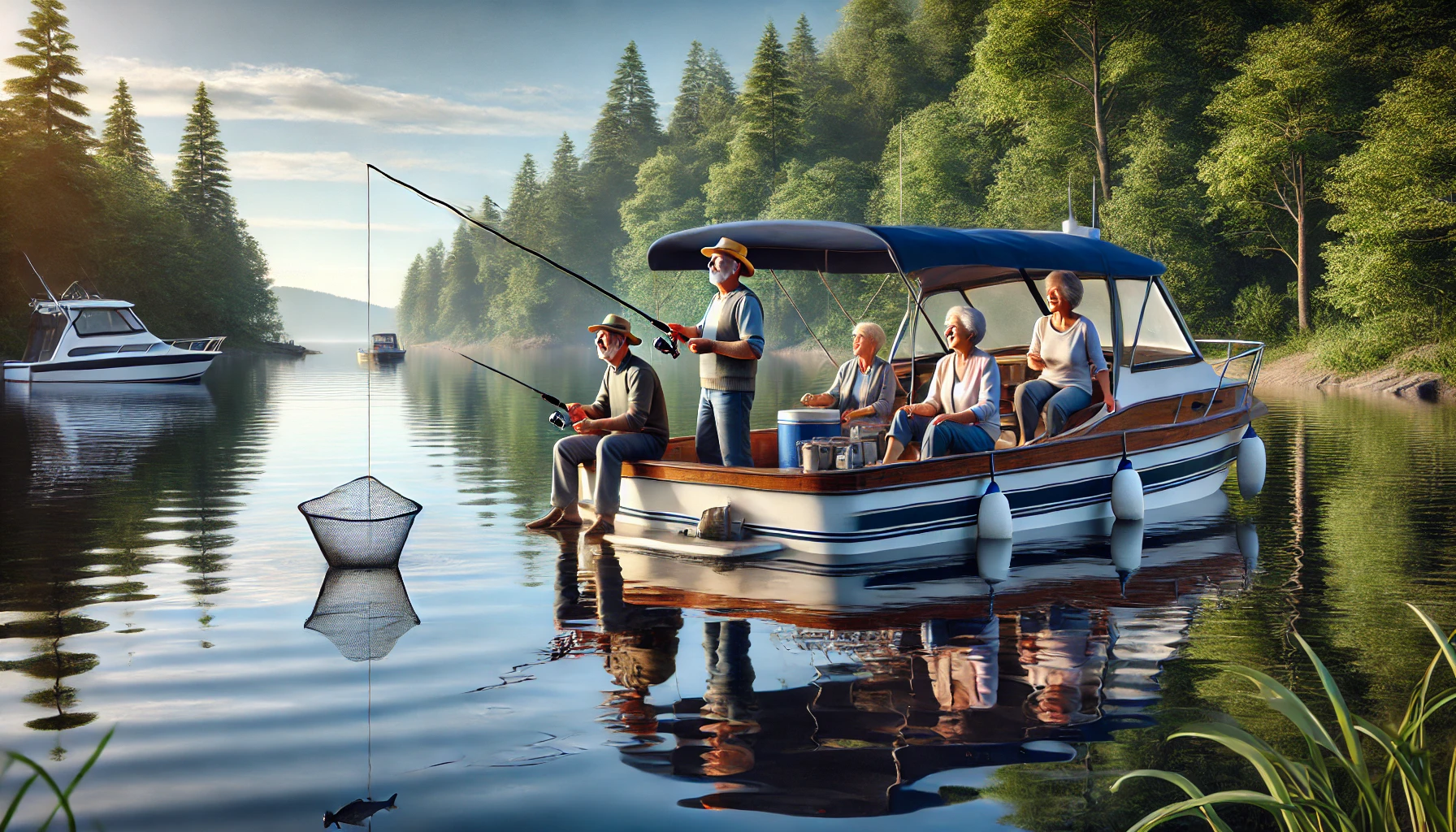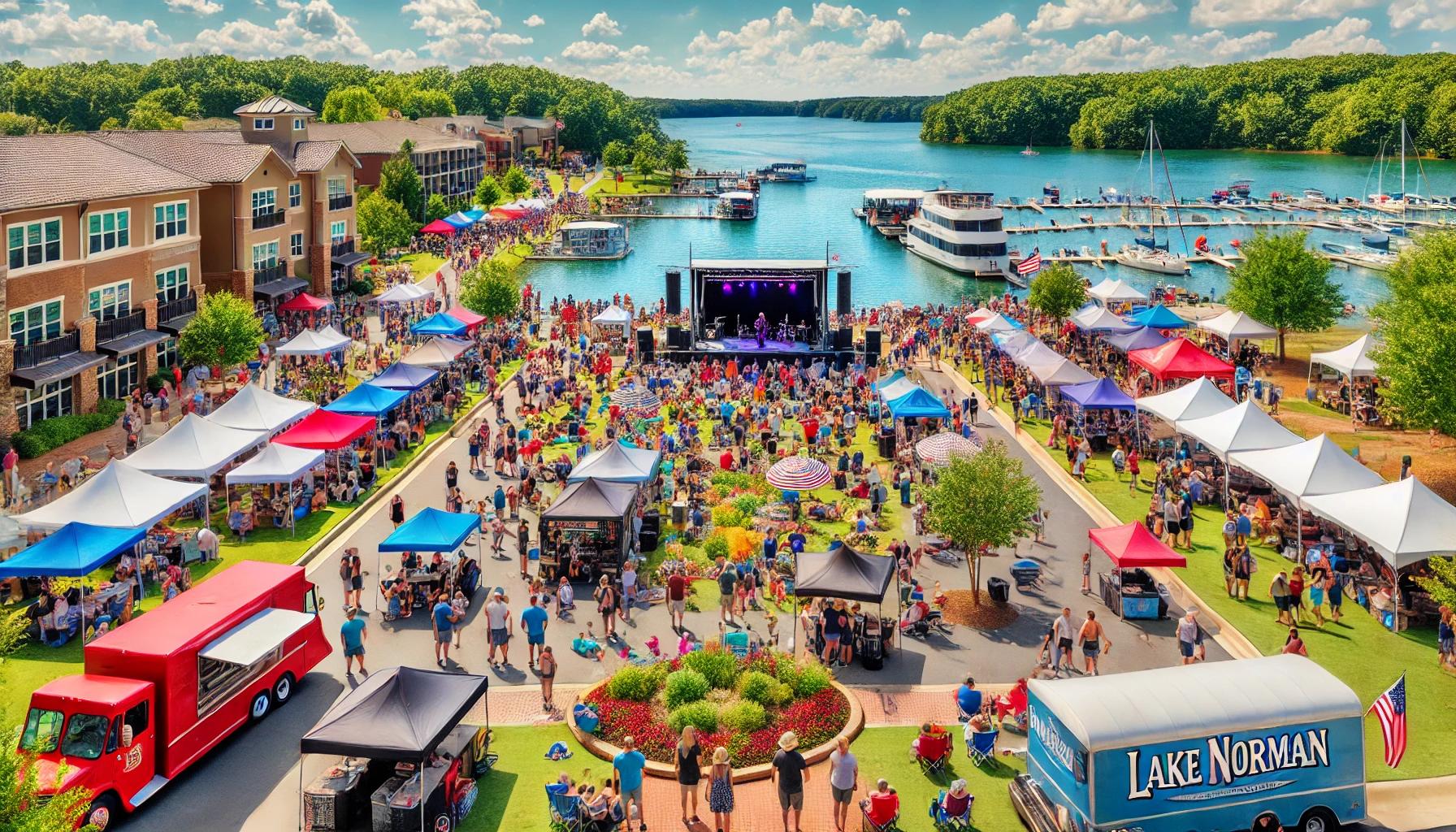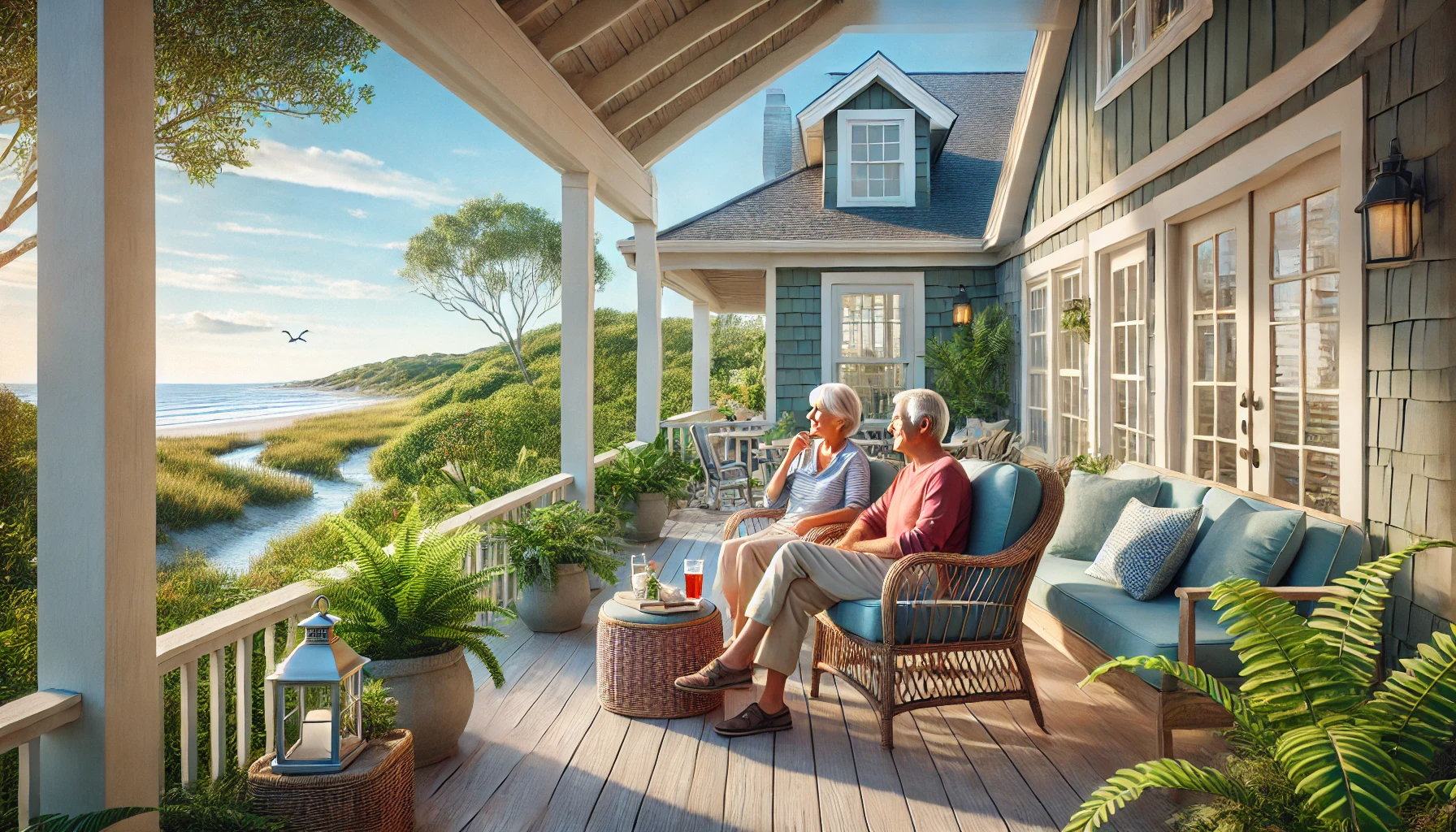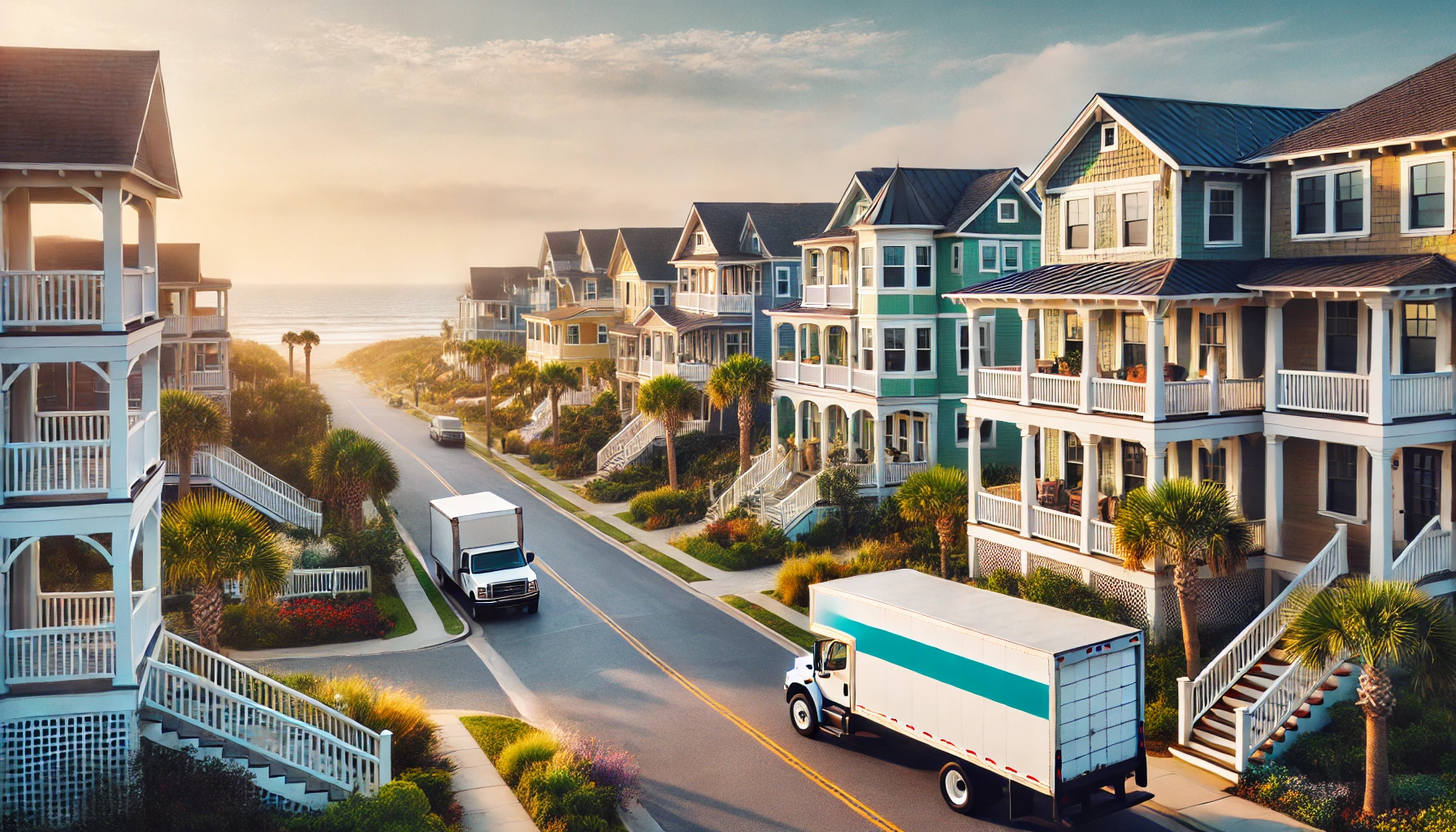Pros and Cons Living in Huntersville, NC
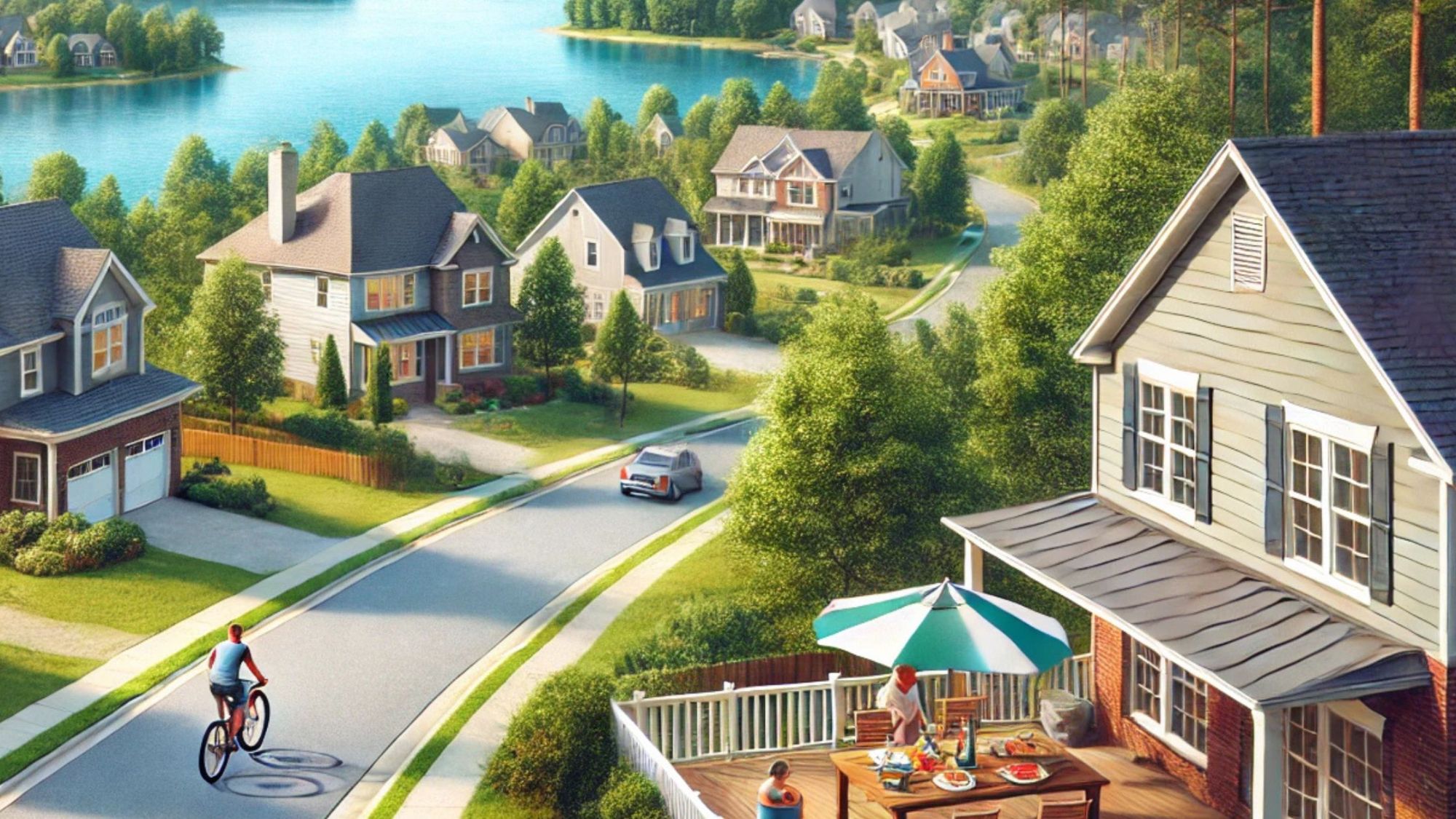
Living in Huntersville, NC, offers a mix of benefits and challenges that potential residents should consider. Situated near Lake Norman and just a short drive from Charlotte, it provides a suburban feel with access to urban amenities.
The town is known for its excellent safety record, vibrant community, and recreational opportunities, making it an appealing choice for families and young professionals alike.
While life in Huntersville is often characterized by beautiful landscapes and a mild climate, it does come with a higher cost of living compared to other regions in North Carolina. Residents may find that housing prices and taxes can strain their budget. Understanding these dynamics is crucial for anyone contemplating a move to this charming town.
Ultimately, weighing the pros and cons can help determine if Huntersville aligns with one’s lifestyle and expectations. With its blend of recreational activities, community spirit, and proximity to larger cities, it presents a unique option for many.
Geographical Overview of Huntersville, NC
Huntersville is located in Mecklenburg County, North Carolina. Situated just north of Charlotte, it benefits from proximity to urban amenities while maintaining a suburban atmosphere.
The town is bordered by Lake Norman to the west, providing scenic views and recreational opportunities. This human-made lake is one of the largest in North Carolina.
The geography of Huntersville includes various parks and green spaces. Notable areas include:
- Birkdale Village: A mixed-use development with shops and eateries.
- Latta Plantation Nature Preserve: A large area for hiking and outdoor activities.
Huntersville has easy access to major highways, particularly I-77 and I-85. This connectivity makes commuting to nearby cities convenient.
The climate is characterized by four distinct seasons. Residents experience warm summers and mild winters, contributing to a variety of outdoor activities year-round.
The town's location also means it is exposed to the occasional tropical storm and seasonal thunderstorms, typical for this region of North Carolina.
Overall, Huntersville's geographical setting offers a blend of natural beauty and accessibility, making it an attractive place for families and individuals seeking a suburban lifestyle close to urban centers.
Cost of Living in Huntersville, NC
Huntersville, NC, presents a distinct cost of living profile that individuals considering a move to this area will find relevant. Key expenses break down into housing, utilities, transportation, and food, each contributing uniquely to the overall financial landscape.
Housing Expenses
Housing costs in Huntersville are notably higher than the national average. The typical home price is approximately $473,500, which is 40% more expensive than the national average of $338,100. Renters can expect to pay around $1,640 per month for a two-bedroom unit, esteeming it 14.7% above the national average rent of $1,430.
This escalation in housing expenses reflects the town's desirable location near Lake Norman and access to Charlotte's amenities. Buyers and renters alike should factor in the competitive market environment, as it influences both availability and pricing.
Utilities and Services
Residents of Huntersville generally experience moderate costs regarding utilities. Basic monthly utility costs average around $150 to $200, which includes electricity, heating, cooling, water, and garbage services. Internet service averages approximately $60 per month.
While healthcare costs can be more manageable compared to other areas in North Carolina, general maintenance fees in apartment complexes or homeowners associations can add additional expenses. Residents should budget accordingly to accommodate these variations.
Transportation Costs
The transportation expenses in Huntersville reflect its suburban nature. Residents typically rely on personal vehicles. Gas prices fluctuate but are generally in line with the state average, typically around $3.00 per gallon.
Public transportation options are limited, which may necessitate owning a car for commuting to work or running errands. The average car insurance in North Carolina hovers around $1,200 annually, contributing to the overall transportation budget.
Food and Groceries
Food costs in Huntersville can be an area of surprise for new residents. Grocery prices are about 10% higher than the national average, owing to location and demand. Monthly grocery bills for a family of four can reach around $700 to $800.
Dining out incurs additional costs, with an average restaurant meal costing about $15 per person. Overall, understanding food expenses is crucial for budgeting effectively in Huntersville.
Education and Schools
Huntersville, NC, offers a variety of educational options for families, with a mix of public and private institutions, as well as opportunities for higher education. The quality of education is an important consideration for residents, and the local schools strive to meet the needs of the community.
Public Schools
Huntersville falls within the Charlotte-Mecklenburg Schools (CMS) district, one of the largest and most diverse districts in North Carolina. The public schools in this district are known for their comprehensive curriculum that includes STEM programs, arts, and advanced placement courses.
Several highly rated elementary, middle, and high schools serve the area. Schools like Blythe Elementary and Hough High School have received commendations for their educational excellence. Additionally, CMS places a strong emphasis on community involvement and parental engagement, enhancing the educational experience for students.
Private Schools
For families seeking alternative educational options, Huntersville hosts a variety of private schools. These institutions often offer smaller class sizes, individualized attention, and specialized curricula.
Notable private schools in the area include Community School of Davidson and Pine Lake Preparatory. These schools cater to diverse educational philosophies, including Montessori and college preparatory programs. The private education sector in Huntersville contributes to an enriching environment for families prioritizing specialized learning paths.
Higher Education Opportunities
While Huntersville does not house major universities, it is conveniently located near several higher education institutions. Residents can access the University of North Carolina at Charlotte, located roughly 20 minutes away, offering a wide range of undergraduate and graduate programs.
Additionally, other colleges and technical schools in the Charlotte metropolitan area provide further educational opportunities. These institutions offer paths for vocational training, adult education, and professional development, making Huntersville a suitable location for lifelong learning.
Job Market and Employment
Huntersville, NC, offers a dynamic job market with a variety of employment opportunities and competitive salaries. The town is characterized by a low unemployment rate, which points to a healthy economic environment.
Employment Opportunities
The job market in Huntersville features a mix of local businesses and well-known companies. Industries such as healthcare, education, retail, and technology dominate the employment landscape.
Some notable employers include:
- Atrium Health: A key player in the healthcare sector.
- Huntersville Elementary School: Provides educational career opportunities.
- Local Retailers: Numerous shops and restaurants contribute to job availability.
With an unemployment rate of 2.69%, job seekers find a plethora of options. This demand reflects a growing community that attracts new residents, thereby expanding the workforce.
Average Salaries and Job Growth
Salaries in Huntersville are competitive, correlating with the area's rising demand for workers. The median household income is around $90,000, indicating a stable economic environment.
In terms of growth, companies in technology and healthcare are expanding, contributing to job creation.
According to reports:
- The average salary in the healthcare sector can reach up to $70,000 annually.
- Retail jobs typically range from $30,000 to $50,000, depending on position.
This diverse salary range supports both entry-level workers and seasoned professionals, making the job market adaptable to various career stages.
Climate and Weather Patterns
Huntersville, NC, experiences a subtropical climate characterized by four distinct seasons. The area receives an average of 43 inches of rainfall annually, contributing to its lush greenery.
Temperature Range:
- Winter: Mild, with temperatures averaging 30°F to 50°F.
- Spring: Warming up, ranging from 40°F to 70°F.
- Summer: Warm to hot, with highs reaching 80°F to 90°F.
- Fall: Cooling temperatures from 40°F to 70°F.
Snow in Huntersville is minimal, with average annual snowfall around 3 inches. This allows for a generally mild winter compared to northern states.
Humidity Levels:
Huntersville experiences moderate humidity levels, particularly in the summer months. This can make temperatures feel warmer than they are, especially during July and August.
Outdoor Activities:
Residents enjoy outdoor activities year-round due to the temperate climate. The warm summers and mild winters provide numerous opportunities for recreational pursuits such as hiking, boating, and sports.
Seasonal Variations:
The fall months bring a vibrant display of foliage, making it a picturesque time for outdoor events. Spring blooms add to the area's aesthetic, contributing to a charming environment.
Overall, the climate in Huntersville is favorable for those who appreciate a variety of weather patterns throughout the year.
Recreational Activities
Huntersville, NC, offers a diverse range of recreational activities, appealing to residents who enjoy both outdoor pursuits and community engagement. The area boasts numerous parks, nature spots, and cultural events that enhance the quality of life for its residents.
Outdoor Activities
Huntersville is home to several outdoor activities that cater to both adventure seekers and casual enthusiasts. The proximity to Lake Norman provides opportunities for boating, fishing, and swimming. Kayaking and paddleboarding are popular among residents during warm months.
Moreover, the trails in Huntersville offer scenic routes for hiking and biking, promoting an active lifestyle. For those who enjoy golf, several high-quality courses are located nearby, presenting a chance to unwind while enjoying beautiful landscapes.
Parks and Green Spaces
The town features numerous parks and green spaces designed for leisure and family activities. Birkdale Village Park serves as a community hub, with picnic areas and playgrounds for children. Ramsey Creek Park offers a beach area, trails, and fishing spots, making it an excellent choice for weekend outings.
Families can also enjoy activities at North Mecklenburg Park, which includes sports fields, basketball courts, and walking paths. These spaces foster community interaction and provide locals with ample options for outdoor recreation.
Cultural Events and Festivals
Huntersville hosts a variety of cultural events and festivals throughout the year, enriching the community spirit. The annual Huntersville Christmas Tree Lighting draws residents together, showcasing performances and local vendors.
In addition, the Taste of Huntersville offers culinary experiences from local eateries, allowing residents to explore diverse food options. Events like the Fourth of July Celebration include fireworks and live music, bringing families together in a festive atmosphere. These activities create a vibrant social scene for residents and visitors alike.
Healthcare Facilities
Huntersville, NC, offers residents access to a variety of healthcare facilities. The town includes both large hospitals and smaller clinics, catering to different medical needs.
Major Hospitals:
- Lake Norman Regional Medical Center: A full-service hospital providing comprehensive medical care.
- Novant Health Huntersville Medical Center: Offers emergency services, outpatient care, and specialized treatment options.
Additional Care Options:
In Huntersville, numerous urgent care centers and family medicine clinics provide convenient access to healthcare. These facilities typically have extended hours to accommodate patient needs.
Specialized Services:
Residents can find specialty services such as:
- Dental care
- Physical therapy
- Mental health services
The average cost of assisted living in the area is approximately $4,930 a month, giving families diverse options for elderly care. This variety reflects the commitment to providing essential healthcare services.
Community Support:
The sense of community in Huntersville enhances its healthcare environment. Local resources, including support groups and wellness programs, contribute to the overall well-being of residents.
With a rating of 9.3 out of 10 for quality, the healthcare facilities in Huntersville demonstrate a strong focus on patient care and service.
Safety and Crime Rates
Huntersville, NC, is considered a safe place to live compared to many other areas in the United States. The crime rate in Huntersville is approximately 17.88 per 1,000 residents, indicating a relatively low incidence of crime.
Crime Breakdown
-
Property Crime Rate: 29.3 per 1,000 residents
(National average: 35.4 per 1,000) -
Violent Crime Rate: 12.2 per 1,000 residents
(National average: 22.7 per 1,000)
These statistics reflect Huntersville’s success in reducing both violent and property crimes. Residents often report feeling safe in their neighborhoods, particularly in the northeast part of the city.
Areas to Consider
While the northeast section is viewed as the safest, the northwest neighborhoods may have higher crime rates. The chance of becoming a victim of crime in the northeast is about 1 in 91. In contrast, the northwest areas see a risk of 1 in 40.
Communities in Huntersville benefit from a proactive police presence and active neighborhood watch programs. These initiatives contribute to the overall safety and sense of security felt by residents.
Living in a low-crime environment makes Huntersville an appealing choice for families and individuals seeking peace of mind.
Community and Lifestyle
Huntersville, NC, offers a vibrant community with a diverse population and a variety of social opportunities. Residents enjoy a blend of suburban charm and access to urban amenities, making it a desirable place to live.
Demographics and Diversity
Huntersville has a population of over 58,000 residents. The community is diverse, with a mix of ethnic backgrounds and age groups. According to recent data, approximately 60% of the population identifies as white, followed by significant Black or African American and Hispanic communities.
This multicultural environment fosters inclusivity and a sense of belonging. Local events and festivals often celebrate different cultures, enhancing community ties. The city attracts families, young professionals, and retirees alike, contributing to its dynamic demographic landscape.
Social Scene and Networking
The social scene in Huntersville is lively, with events catering to various interests. Residents can engage in community gatherings, farmers' markets, and seasonal festivals. For those looking to network, local organizations and meetups provide ample opportunities.
Outdoor enthusiasts can take advantage of Lake Norman and nearby parks for recreational activities. Social media groups also facilitate connections, helping newcomers assimilate quickly. Additionally, Huntersville's proximity to Charlotte allows residents to enjoy the nightlife and cultural offerings of a major city while maintaining a close-knit community feel.
Local Government and Infrastructure
Huntersville, NC, is supported by a well-structured local government that prioritizes community needs. The infrastructure is designed to facilitate growth while ensuring residents have access to essential services.
Public Services
The Town of Huntersville offers a range of public services to its residents. This includes essential facilities such as police and fire services, which are crucial for community safety. The Huntersville Fire Department operates multiple stations, ensuring rapid response times across the area.
Residents also benefit from the Charlotte-Mecklenburg School District, providing quality education. Parks and recreation services promote community engagement, with numerous parks available for leisure activities. Furthermore, public libraries and community centers serve as cultural hubs and resources for information and support.
Transportation Infrastructure
Transportation in Huntersville is well-developed, featuring major highways and local roads to support connectivity. Key thoroughfares, including Interstate 77 and Interstate 85, allow easy access to the greater Charlotte metropolitan area. This is advantageous for residents commuting to surrounding jobs.
Public transit options, such as buses operated by the CATS, provide alternatives for those without personal vehicles. Additionally, the presence of sidewalks and bike lanes enhances safety and encourages active commuting. The infrastructure supports both automobile and pedestrian traffic, contributing to a well-rounded transportation network.
Real Estate Market
The real estate market in Huntersville, NC, offers various options for potential buyers and renters. It is important to examine various factors such as buying versus renting, property taxes, and current real estate trends in the area.
Buying vs. Renting
When considering a home in Huntersville, individuals often weigh the benefits of buying versus renting. Buying a home generally requires a larger upfront investment but can provide stability and long-term equity. The current median home price in Huntersville is approximately $400,000, making it accessible yet competitive.
Conversely, renting may be a suitable option for those who prefer flexibility without the burden of maintenance costs. Monthly rents in the area typically range from $1,500 to $2,200, depending on the location and amenities. Each option has its pros and cons, and lifestyle preferences ultimately drive the decision.
Property Taxes
Property taxes in Huntersville are relatively moderate compared to other regions in North Carolina. The current rate is about 1.1% of the assessed value of the property. This means homeowners should anticipate an annual tax bill based on their property’s value, which can impact overall housing expenses.
Moreover, the local government uses property tax revenues to fund essential services like education, infrastructure, and public safety, contributing to the community’s overall quality of life. It is advisable for potential homeowners to consider property taxes as part of their budgeting process.
Real Estate Trends
Currently, the real estate market in Huntersville is experiencing growth, driven by increased demand and a strong local economy. Home values have risen by about 5% over the past year, reflecting the appeal of the area’s amenities, schools, and proximity to Charlotte.
Additionally, new construction is on the rise, with several developments aiming to meet the growing demand for housing. Trends indicate a shift toward more suburban living, with families flocking to Huntersville for its community-oriented atmosphere. This evolving market offers diverse options for buyers and renters, catering to various preferences and budgets.
Categories
- All Blogs (31)
- invest in coastal NC (1)
- Investing in Lake Norman (1)
- Living in Carolina Beach NC (2)
- Living in Cornelius NC (1)
- Living In Davidson NC (2)
- Living in Huntersville NC (1)
- Living in Kure Beach NC (1)
- Living in Mooresville NC (1)
- Living in Surf City NC (2)
- Living in Topsail Island NC (4)
- Living in Wriightsville Beach NC (3)
- Living on Lake Norman (6)
- Move to Carolina Beach, NC (1)
- Move to Kure Beach NC (1)
- Move to Surf City NC (1)
- Move to Topsail Island NC (1)
- Moving to Wrightsville Beach NC (1)
- Retire in Carolina Beach NC (1)
- retire in Kure Beach NC (1)
- Retire in Surf City NC (1)
- Retire in Topsail Island NC (1)
- Retire in Wrightsville Beach NC (1)
Recent Posts

